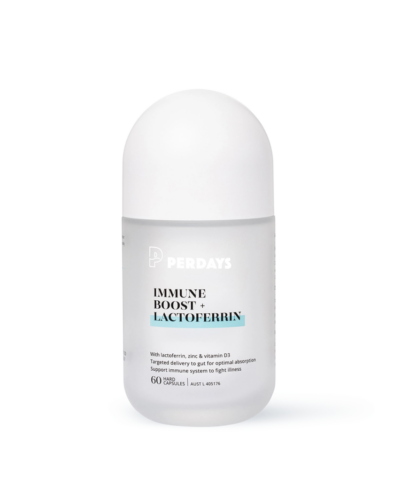By Latoya Cruz
In a Nutshell
- Pregnancy alters the immune system, with increased T-cells and white blood cells to protect mum and baby.
- While more susceptible to infections (UTIs, listeria, viral), some autoimmune diseases may improve.
- Prenatal immune support includes good sleep, exercise, sunshine, a healthy diet rich in immune-boosting nutrients and stress management through gentle exercise and relaxation techniques.
Introduction
During pregnancy, a woman’s immune system will adapt and change as her body progresses through the journey of growing a baby. Whilst pregnant women can be
quite vulnerable to disease and illness, the immune system isn’t necessarily becoming weaker.
In this article we explore the changes to the immune system during pregnancy, what risks of illness are involved during pregnancy and ways to best support the immune system during pregnancy.
Changes to the Immune System During Pregnancy:
It’s a fact that prevention is better than cure. However, that’s not to say we cannot manage illness through nutrition. When it comes to preventing illness and supporting our immune system, it’s something we should be looking to do all year round.
Rather, most people focus on trying to support their immune system once they become ill. This should be when we switch to management strategies.
Risks of Illness During Pregnancy:
Although pregnancy increases t-cells and white blood cells, pregnant women are still susceptible to illness. Research shows that pregnancy may trigger or worsen some
underlying autoimmune conditions such as rheumatoid arthritis, lupus and skin conditions such as eczema. However, whilst some autoimmune conditions may
worsen, some immune-mediated diseases may improve such as coeliac disease.
Research also states that a pregnant women’s risk of infection also increases during this time. For example, pregnant women are more prone to develop UTI’s. Pregnant
women are also a known population group that is vulnerable to infections such as listeria and viral infections. This is due to the unique immunological condition that pregnancy poses.
How to Support the Immune System During Pregnancy
The best way to support the immune system is to take preventative measures year-round, rather than just seasonally. For pregnant women, this means they should be making dietary and lifestyle modifications to support their immune system each day, throughout their pregnancy.
This can be done through getting enough sleep each night, gentle exercise, keeping hydrated, getting outside in the fresh air and sunshine and consuming a diet rich in zinc, vitamin c, vitamin d and lactoferrin, as well as supporting their gut health. Said nutrients are the most scientifically backed nutrients known to support and strengthen the immune system. In order to support both the immune system and support a healthy pregnancy, mothers to be should also take into account stress management.
Stress is known to wreak havoc on the body, particularly the immune system. A pregnant woman should look for ways to decrease both physical and emotional stress by switching high intense workouts for a gentler form such as walking, weight training and prenatal yoga and pilates.
Summary
In summary, a pregnant woman’s immune system will go through changes and adaptations during the course of the pregnancy. In some cases, underlying autoimmune conditions may worsen during this time, while some immune- mediated conditions may improve. This is due to the changes in t-cells, killer t-cells and white blood cell count.
A woman may be more prone to infections such as viral infections and UTI’s during gestation. All pregnant women should be taking preventative measures in order to protect their immunity during pregnancy through dietary and lifestyle modifications.
Looking to boost your immune system while breastfeeding?
Perdays Breastfeeding Immune Boost + Lactoferrin has been formulated to support healthy immune system function and maternal health. Each capsule Bovine lactoferrin 50mg, Zinc (as zinc citrate dihydrate) 7.5mg, Ascorbic acid (Vitamin C) 30mg, and Colecalciferol (Vitamin D3 500IU) 12.5 micrograms.

Latoya Cruz is a qualified nutritionist, registered with the Australian Traditional Medicine Society (ATMS). Latoya has an interest in women’s health including fertility, pre and postnatal, hormonal health and supporting busy, burnt out mums.
References
- https://www.ncbi.nlm.nih.gov/pmc/articles/PMC7579415/
- https://www.ncbi.nlm.nih.gov/pmc/articles/PMC3025805/
- https://www.ncbi.nlm.nih.gov/pmc/articles/PMC9201458/

